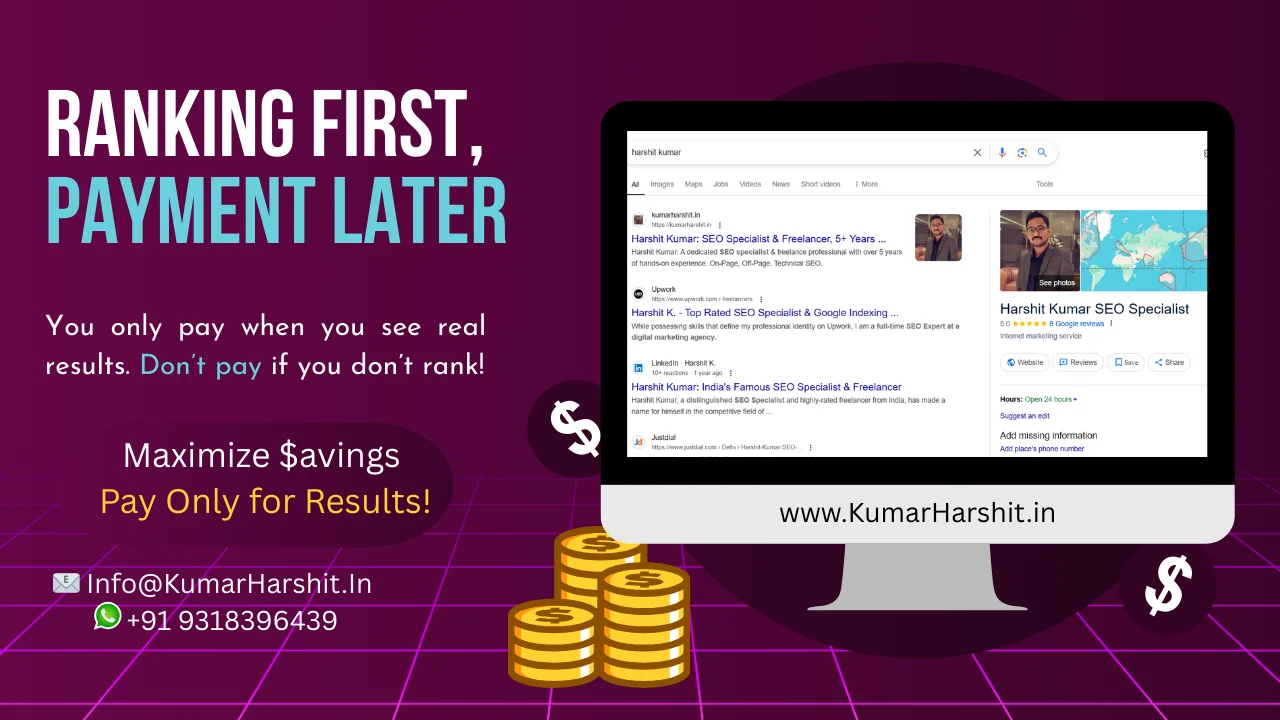Search Engine Optimization (SEO) is an essential aspect of online marketing that ensures a website ranks high on search engines like Google. Over the years, SEO strategies have evolved significantly, and with the rise of artificial intelligence (AI), these changes have become even more profound. AI technology has transformed SEO practices, enabling businesses to gain a competitive edge in the digital space. So, what elements are foundational for SEO with AI Let’s dive into the core components that power SEO today, focusing on how AI enhances each element.
1. Keyword Research and Optimization
In the world of SEO, keywords remain the foundation of every successful strategy. Keyword research involves identifying the terms and phrases users are searching for in search engines. With AI-powered tools, this process has become faster, more accurate, and data-driven. AI can analyze vast amounts of search data to identify not only high-ranking keywords but also long-tail keywords, semantic search terms, and user intent behind queries.
AI-powered tools like Google’s BERT (Bidirectional Encoder Representations from Transformers) and GPT (Generative Pre-trained Transformer) provide a deeper understanding of search intent and context. This means SEO professionals can create more relevant content that aligns with what users are searching for. AI algorithms analyze patterns in search behavior and can recommend new keywords that may not be immediately obvious to a human.
2. Content Creation and Optimization
Content is king in the world of SEO, and AI has revolutionized how content is created and optimized. Creating high-quality, relevant content that matches search intent is crucial for SEO success. AI tools assist in generating topic ideas, structuring content, and ensuring it meets SEO standards.
AI-powered platforms like Jasper and Copy.ai help content creators by generating keyword-rich articles, blog posts, and social media updates. These tools use natural language processing (NLP) to generate human-like text that resonates with audiences and ranks well in search engines. Additionally, AI can analyze existing content and suggest improvements to enhance keyword density, readability, and relevance.
Furthermore, AI-based content optimization tools can automatically update older content to ensure it remains relevant. They track changes in search trends and recommend updates to content, such as new keywords or updated statistics, to improve rankings.
3. On-Page SEO and AI-driven Optimization
On-page SEO refers to the practice of optimizing individual web pages to rank higher and attract more relevant traffic. This involves optimizing elements such as meta titles, descriptions, headers, image alt texts, and internal linking. AI plays a significant role in automating and enhancing these on-page SEO efforts.
AI tools can analyze a webpage and recommend improvements based on current SEO best practices. For example, AI-driven content analysis can suggest better ways to incorporate keywords naturally, ensuring they fit seamlessly within the content without appearing spammy. Moreover, AI-based tools can optimize images by generating accurate alt text and ensuring proper image compression for faster loading times—an important ranking factor for search engines.
AI also helps in analyzing and suggesting internal linking strategies that enhance user experience and improve site navigation. AI can automatically detect pages that are underperforming and recommend changes in the internal link structure to increase traffic flow and improve rankings.
4. Technical SEO with AI-powered Insights
Technical SEO focuses on the backend elements of a website that influence its search engine rankings. This includes website speed, mobile-friendliness, crawlability, and indexability. AI enhances technical SEO by providing insights and automating various tasks that would otherwise require manual effort.
AI tools can perform deep technical audits of websites, identifying issues like broken links, slow page load times, and poor mobile performance. These insights allow SEO professionals to make necessary adjustments, ensuring the site is optimized for both search engines and users.
AI-powered tools like Google’s Core Web Vitals tool help assess page performance and provide suggestions on how to improve user experience. By analyzing user interaction data, AI can also predict potential technical issues before they negatively affect the site’s SEO performance.
5. User Experience and AI-Powered Personalization
User experience (UX) has always been an important aspect of SEO, but with AI, it has become even more critical. Search engines like Google prioritize websites that offer a positive user experience. This includes factors like fast load times, intuitive navigation, and relevant content.
AI plays a crucial role in personalizing user experiences. By leveraging AI, websites can offer personalized content, recommendations, and dynamic user interfaces. AI-based tools can track user behavior in real-time and adjust the content accordingly, ensuring a more engaging experience that keeps users coming back.
Furthermore, AI can help predict what users are likely to engage with based on their previous interactions. This allows for a more tailored experience, which is critical in improving engagement rates and reducing bounce rates, two factors that influence SEO rankings.
6. Link Building and AI Algorithms
Backlinks continue to be a key ranking factor in SEO. Quality backlinks from authoritative sites signal to search engines that your content is trustworthy and valuable. AI is enhancing link-building strategies by automating the process and identifying opportunities for high-quality backlinks.
AI tools can analyze competitor backlink profiles, identify link-building opportunities, and even automate outreach to potential websites for guest posts or partnerships. AI can also evaluate the quality of backlinks, ensuring that they are relevant and beneficial to your SEO efforts.
Moreover, AI-powered algorithms can detect spammy or low-quality backlinks that may harm a website’s rankings. By removing or disavowing these links, AI helps maintain a clean and effective link profile.
7. SEO Analytics and AI Reporting
Measuring and analyzing SEO performance is crucial for any digital marketing strategy. AI-driven analytics tools provide deeper insights into how a website is performing on search engines. These tools can process massive amounts of data and provide real-time reports on traffic, rankings, user behavior, and engagement metrics.
AI-powered platforms like Google Analytics use machine learning to offer predictive insights. This means businesses can anticipate trends, discover emerging opportunities, and make proactive adjustments to their SEO strategies. AI-driven reports also allow marketers to visualize data more effectively, helping them make data-driven decisions that optimize SEO efforts.
8. Voice Search Optimization
With the growing popularity of voice assistants like Siri, Alexa, and Google Assistant, voice search optimization has become a key area of focus for SEO. AI technologies such as natural language processing (NLP) and machine learning are making it easier for SEO professionals to optimize content for voice search.
Voice searches tend to be longer and more conversational than text-based queries. AI can help analyze voice search trends and adapt content accordingly. By optimizing for voice search, websites can increase their chances of appearing in featured snippets, which are becoming more common in voice search results.
Conclusion
The foundational elements of SEO have been significantly enhanced by AI technologies. From keyword research and content creation to technical SEO and user experience, AI is shaping the future of SEO by automating tasks, providing data-driven insights, and enhancing personalization. By leveraging AI, businesses can create more efficient and effective SEO strategies that lead to higher rankings, increased traffic, and improved user engagement. As AI continues to evolve, its impact on SEO will only grow stronger, making it an indispensable tool for marketers and businesses aiming for success in the digital landscape.



